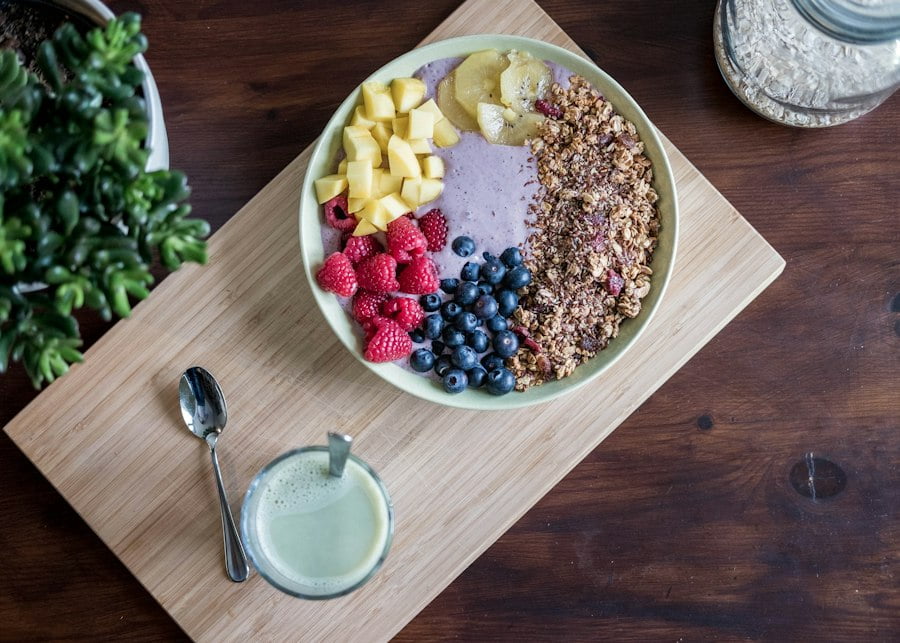
Mind and Body: Top Mental Health and Fitness Tips for a Happier You
The mind-body connection refers to the relationship between our thoughts, emotions, and physical health. It is the understanding that our mental and emotional well-being can have a direct impact on our physical health, and vice versa. This concept has been recognized for centuries in various cultures and is now gaining more attention in the field of modern medicine.
Taking care of both the mind and body is crucial for overall health and wellness. When we neglect one aspect, it can have a negative impact on the other. For example, chronic stress or anxiety can lead to physical symptoms such as headaches or digestive issues. On the other hand, physical ailments or chronic pain can take a toll on our mental health, leading to feelings of depression or anxiety.
By understanding and nurturing the mind-body connection, we can achieve a state of balance and well-being. This involves adopting healthy habits and practices that promote both mental and physical health. In this article, we will explore various tips and techniques for improving mental health, physical health, fitness, nutrition, sleep, stress management, mindfulness, and social connection.
Key Takeaways
- Understanding the mind-body connection is crucial for achieving optimal health and wellness.
- Tips for a happier mind include practicing gratitude, mindfulness, and self-care.
- Tips for a healthier body include staying hydrated, eating a balanced diet, and getting enough sleep.
- Exercise is important for both physical and mental health, and can improve mood and reduce stress.
- Eating a nutritious diet and getting enough rest are essential for overall health and wellness.
Mental Health: Tips for a Happier Mind
Mental health is just as important as physical health when it comes to overall well-being. It affects how we think, feel, and act on a daily basis. Taking care of our mental health involves adopting practices that promote happiness, resilience, and emotional well-being.
One practical tip for improving mental health is practicing gratitude. Taking time each day to reflect on the things we are grateful for can shift our focus from negativity to positivity. This simple practice has been shown to improve mood and overall well-being.
Another tip is practicing mindfulness. Mindfulness involves being fully present in the moment and non-judgmentally observing our thoughts and emotions. This practice can help reduce stress and anxiety, improve focus and concentration, and enhance overall mental well-being.
Physical Health: Tips for a Healthier Body
Physical health is the foundation of overall well-being. When we take care of our bodies, we have more energy, feel better, and are better equipped to handle the challenges of daily life.
One practical tip for improving physical health is staying hydrated. Drinking enough water throughout the day is essential for maintaining proper bodily functions, such as digestion, circulation, and temperature regulation. It also helps keep our skin healthy and can even improve our mood.
Getting enough sunlight is another important tip for physical health. Sunlight is a natural source of vitamin D, which is crucial for bone health and immune function. Spending time outdoors and getting sunlight can also boost mood and improve mental well-being.
Fitness: The Importance of Exercise for Mind and Body
| Category | Metric | Importance |
|---|---|---|
| Physical Health | Cardiovascular Endurance | Reduces risk of heart disease, stroke, and high blood pressure |
| Muscular Strength | Improves bone density and reduces risk of injury | |
| Flexibility | Improves range of motion and reduces risk of injury | |
| Mental Health | Stress Reduction | Reduces symptoms of anxiety and depression |
| Cognitive Function | Improves memory, attention, and decision-making skills | |
| Mood Enhancement | Increases feelings of happiness and well-being |
Exercise is not only important for physical health but also has numerous benefits for mental well-being. Regular physical activity has been shown to reduce symptoms of depression and anxiety, improve mood, boost self-esteem, and enhance cognitive function.
One practical tip for incorporating exercise into daily life is finding an activity you enjoy. Whether it’s dancing, hiking, swimming, or playing a sport, engaging in activities that you find fun and enjoyable will increase your chances of sticking with it long-term.
Setting achievable goals is another important tip for fitness. Start small and gradually increase the intensity or duration of your workouts. This will help you stay motivated and avoid burnout or injury.
Nutrition: Eating for Optimal Health and Wellness
Nutrition plays a vital role in overall health and wellness. Eating a balanced diet that includes a variety of fruits, vegetables, whole grains, lean proteins, and healthy fats provides the necessary nutrients for optimal bodily functions.
One practical tip for improving nutrition is eating a balanced diet. This means including foods from all food groups in appropriate portions. Avoiding processed foods that are high in sugar, salt, and unhealthy fats is also important for maintaining good health.
Another tip is practicing mindful eating. This involves paying attention to the taste, texture, and smell of the food we eat, as well as our hunger and fullness cues. By eating mindfully, we can better listen to our body’s needs and make healthier choices.
Sleep: The Importance of Rest and Recovery

Sleep is often overlooked but is essential for overall health and wellness. It is during sleep that our bodies repair and regenerate, and our brains process and consolidate information from the day.
One practical tip for improving sleep is establishing a bedtime routine. Going to bed and waking up at the same time each day, even on weekends, helps regulate our internal body clock and promotes better sleep quality.
Creating a comfortable sleep environment is another important tip for improving sleep. This includes keeping the bedroom cool, dark, and quiet, investing in a comfortable mattress and pillows, and removing electronic devices that emit blue light.
Stress Management: Techniques for Coping with Stress
Stress is a normal part of life, but chronic stress can have a negative impact on both our mental and physical health. Learning effective stress management techniques can help us cope with stress in a healthy way.
One practical tip for managing stress is practicing relaxation techniques. Deep breathing exercises, progressive muscle relaxation, and guided imagery are all effective techniques for reducing stress and promoting relaxation.
Seeking support from loved ones is another important tip for managing stress. Talking to someone we trust about our feelings can provide emotional support and help us gain perspective on our problems.
Mindfulness: Practices for a More Present and Aware Life
Mindfulness is the practice of being fully present in the moment, without judgment. It involves paying attention to our thoughts, emotions, and sensations in a non-reactive way.
One practical tip for incorporating mindfulness into daily life is practicing meditation. Meditation involves focusing our attention on a specific object, such as our breath or a mantra, and observing our thoughts and emotions without judgment.
Being present in the moment is another important tip for mindfulness. This means fully engaging in whatever we are doing, whether it’s eating, walking, or having a conversation. By being present, we can fully experience and appreciate the present moment.
Social Connection: The Importance of Relationships for Mental Health
Social connection is a fundamental human need and plays a crucial role in our mental health and overall well-being. Building and maintaining relationships with others can provide emotional support, reduce feelings of loneliness and isolation, and enhance our sense of belonging.
One practical tip for building relationships is joining a club or group that shares your interests. This can provide opportunities to meet like-minded individuals and form meaningful connections.
Volunteering in the community is another important tip for social connection. Helping others not only benefits those in need but also provides a sense of purpose and fulfillment, which can improve mental well-being.
Integrating Mind and Body for a Happier, Healthier You
Taking care of both the mind and body is essential for overall health and wellness. By understanding the mind-body connection and adopting healthy habits and practices, we can achieve a state of balance and well-being.
Incorporating the tips and practices discussed in this article into our daily lives can lead to a happier, healthier future. Whether it’s practicing gratitude, staying hydrated, exercising regularly, eating a balanced diet, getting enough sleep, managing stress, practicing mindfulness, or building social connections, each small step we take towards nurturing our mind and body brings us closer to optimal health and wellness. So let’s prioritize self-care and make it a priority to take care of both our minds and bodies for a happier, healthier life.
FAQs
What is mental health?
Mental health refers to a person’s overall psychological well-being. It includes emotional, social, and psychological aspects of a person’s life.
What is fitness?
Fitness refers to a person’s physical well-being. It includes the ability to perform physical activities and maintain a healthy body.
How are mental health and fitness related?
Mental health and fitness are closely related. Exercise has been shown to improve mental health by reducing stress, anxiety, and depression. Additionally, maintaining good mental health can help motivate individuals to exercise and maintain a healthy lifestyle.
What are some mental health tips?
Some mental health tips include practicing mindfulness, seeking support from friends and family, engaging in activities that bring joy, and seeking professional help if needed.
What are some fitness tips?
Some fitness tips include setting realistic goals, finding an exercise routine that works for you, staying hydrated, and getting enough rest and recovery time.
How can I improve my mental health and fitness?
To improve mental health and fitness, it is important to make lifestyle changes such as eating a healthy diet, getting regular exercise, practicing stress-reducing techniques, and seeking professional help if needed. It is also important to set realistic goals and make gradual changes to your routine.


















